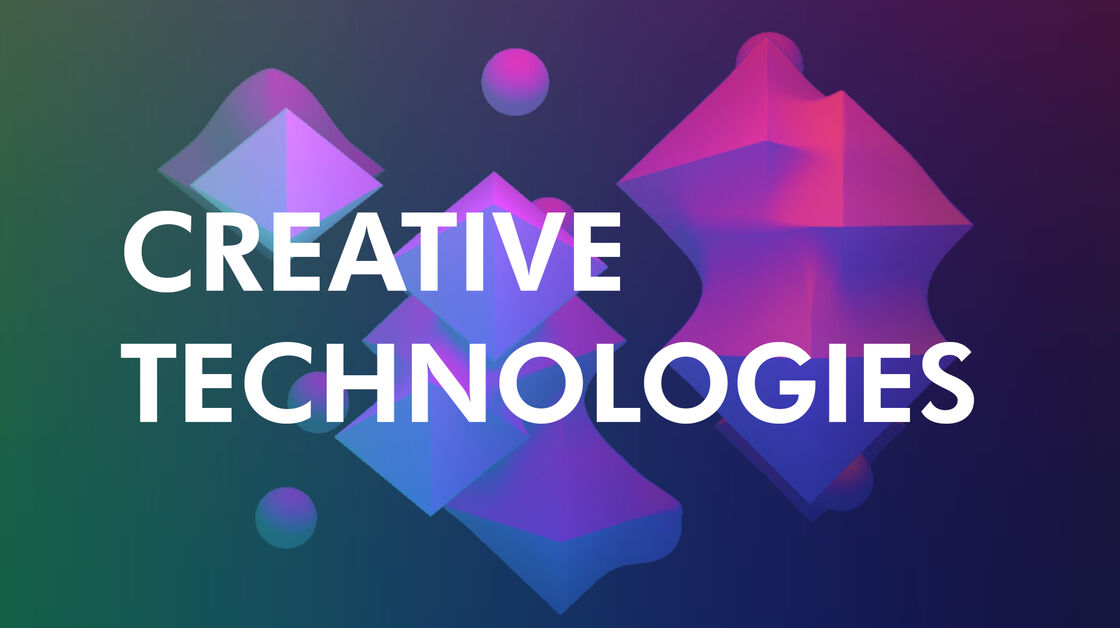Curriculum
Program topics range from the technical-formal to the artistic-creative in theory and practice.
Core Competencies

With the CTech program you build the following technical-formal expertise:
- Design and application of modern audio-visual media technologies, such as VR systems
- Software development
- Theoretical backgrounds for audio & graphics
- Research methodologies and analytical problem solving
- Understanding of the current state of the art in the research fields of media computer science, digital media are and film production
You apply this expertise in an self-chosen, often creative-artistic context. Possible topic areas are:
- Creative coding, graphics & audio
- Novel forms of film
- Interactive storytelling
- Digital media art
- Movie production processes
- Academic and Artistic Research
Innovative prototype development
Through the CTech program you gain solid technical understandings and practical production experiences. But you also train your mind creatively as well as analytically, therefore your problem solving skills. Through the inclusion and reflection of research publications you know the current state of the art and you foster your understanding of the big picture.
The ultra-modern technical infrastructure and equipment for media productions, as well as the large community of creatives at the Film University give you the exclusive opportunity to bring your ideas to life on a professional level. You are building reference work and a strong network as first steps of your successful career!
Questions About the Curriculum?
Just get in touch - we are happy to answer any questions you might have!
The Program
1st Year
In the first year of your studies a program structure is given and lectures modules with exercises prevail. The project modules include the work on the orientation project you applied with and some practical workshops. 6 hours per week are dedicated to freely electable courses from different programs of the Film University.
2nd Year
The second year is more openly structured. The third term includes project modules only, with workshops and individual as well as team exercises. In the fourth term you complete your master thesis.
During your studies you chose an individual specialisation from the Creative Technologies topics. Professors support and advise you in weekly one-to-one meetings. Advanced exercises and individual projects deepen your specialisation and enable expert knowledge.
Classes are taught in English. However, elective classes from other programs of the Film University are mainly taught in German.
Modules
The program follows a modular approach including lecture and project modules.
Courses
The following list of lectures also includes their German denominations - currently the formal regularia of the program, including some lecture names, are only available in German.
SWS stands for "Semesterwochenstunden" and indicates how many "hours per week" a lecture has.
